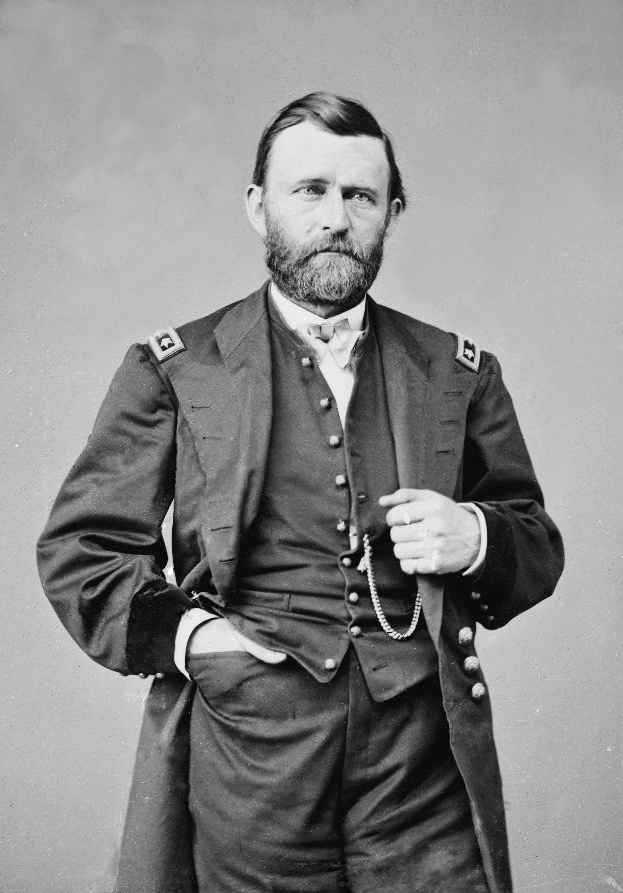Wednesday, September 28, 2011
American Heroes
I just finished Grant's memoirs. They are extraordinary, and show an extraordinary mind. They've made me think quite a bit about Grant, and about American heroes in general.
I should preface this by saying that I have not read a good biography of Grant. I know only what I've read in histories of the Civil War and from his own words.
Ta-Nehisi Coates has talked about Grant as a great American hero -- his name is Ulysses, and his initials are US. He's a loving father and husband, functional alcoholic, gifted writer, brilliant general and a failure at everything he tried (save soldiering) until he was nearly 40. He starts the war in a slave-owning family and ends it as a supporter of black solidiers, and as president does more for civil rights than anyone until LBJ some 80 years later. Later, he writes his first and only book while dying of throat cancer, just so his family has enough money to live on when he's gone. They become one of the greatest American bestsellers up to that date, are live on as some of the greatest military memoirs ever.
But beyond this great and fascinating narrative, he is a recognizably American hero. He shows characteristics we Americans admire -- he's largely self-taught, of modest origins, capable of changing his mind and doing the right thing (about black American soldiers, for instance), outspoken and direct. More than this, he comes from an America that I can recognize as my own country. He was brought up in a democratic society, with it's trust in the people and self-made men. He was born an American Citizen, not a British subject. In short, he comes from a time in American history when America had started to figure out what it was. The same can be said of Lincoln.
The revolutionary generation, in contrast, seem to come from a distant and mythic past. A country that was in some ways more British than America, where the people are distrusted and being an aristocrat is honored. There was no America when they were born, and in many ways it shows -- it's easy to see democracy not as a fact in Jefferson's life but as a lofty ideal. For Grant and Lincoln, Democracy wasn't just an ideal, it just was.
And of course it all fits together. The son of a hardscabble farmer turned wealthy lawyer, the serial failure turned savior of his country, these stories belong to a democratic society in a way that Washington (or Lee's) aristocratic origins do not.
America is awash with idolatry for the founders, yet they belong to a much different world, a world that they helped end with their own actions. Their writings do not strike me as wise because they are -American- but because they are timeless reflections the nature of a Republic. Contrast this with Grant, whose thoughts on the constitution and it's limitations could have been written yesterday.
Of course there is another side to this -so much of what we are was already present at the founding. Yet this similarity is emphasized in our memory to the point where it is easy to forget the differences. And, as always in history, the differences matter.
Subscribe to:
Post Comments (Atom)

No comments:
Post a Comment